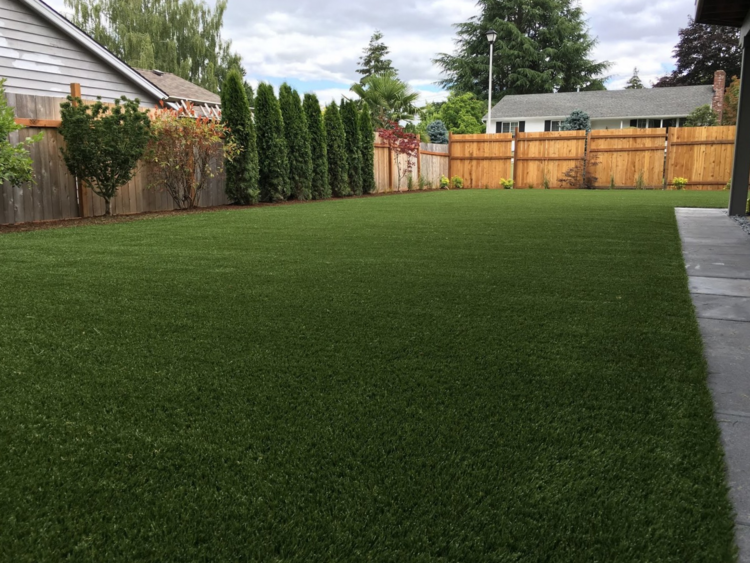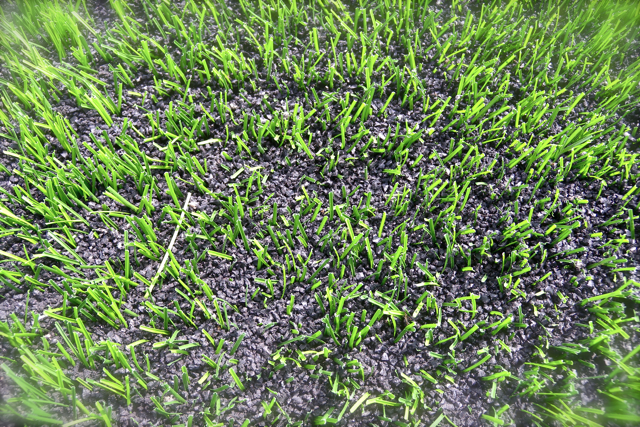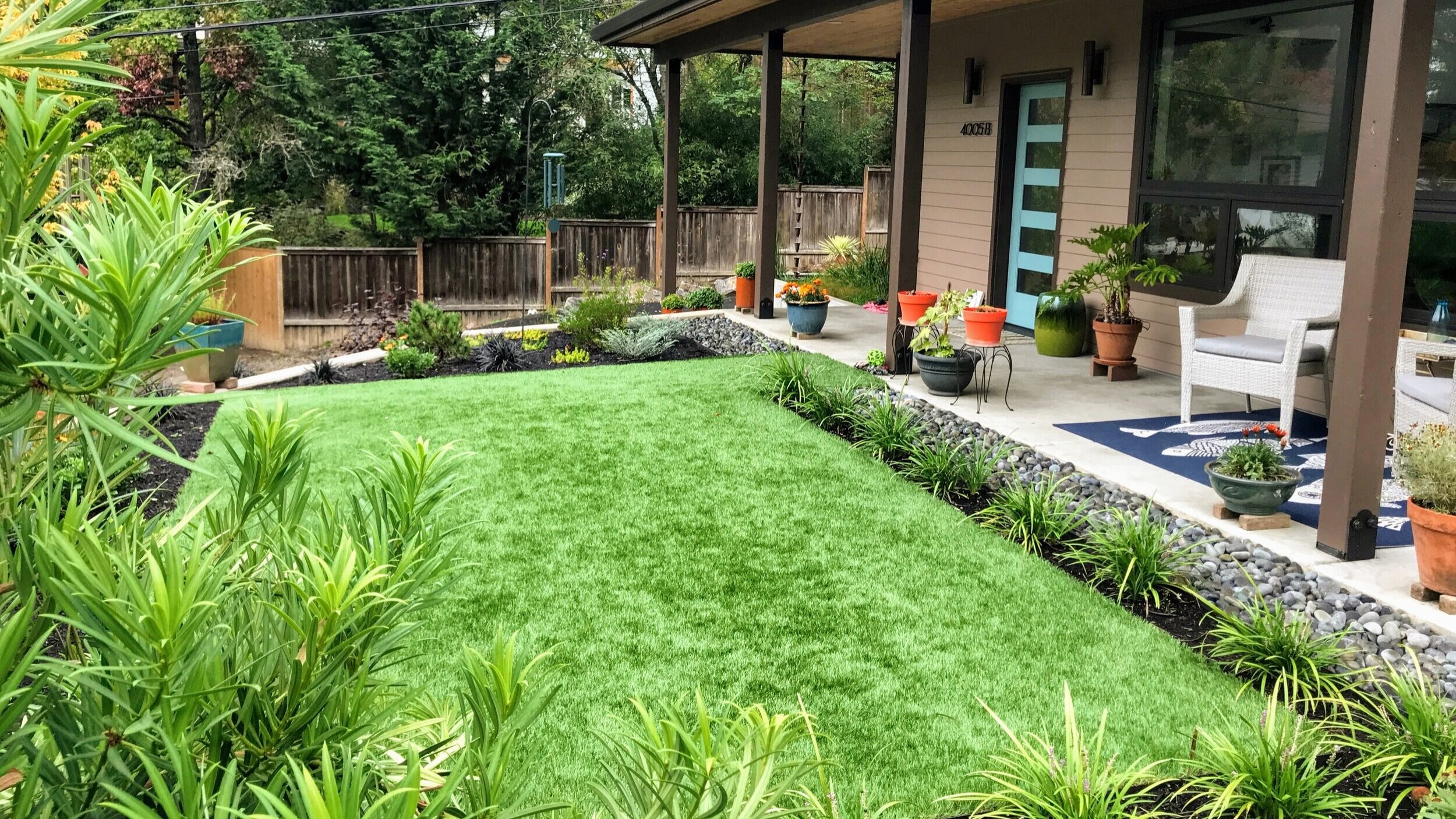High-Quality Arizona Turf Installation Solutions for Residences and Businesses
Wiki Article
Explore the Environmental Conveniences of Opting for Artificial Turf Solutions
The fostering of artificial grass solutions offers an engaging possibility to deal with pressing ecological obstacles. By substantially lowering water usage and reducing the application of dangerous chemicals, these choices not only advertise sustainable landscaping yet additionally safeguard local ecological communities.Water Conservation Conveniences
One of the most substantial advantages of man-made turf is its capability to save water. In contrast, synthetic turf does not require watering, significantly reducing the total demand for water resources.By removing the demand for normal watering, synthetic grass contributes to lasting landscape practices and assists mitigate the environmental impact of too much water consumption. Additionally, the preservation of water encompasses the reduction of runoff, which can cause dirt erosion and waterway contamination.
In addition, the installation of synthetic turf allows home owners and municipalities to designate water resources more effectively, focusing on crucial uses such as drinking water and agriculture. The change towards artificial turf not only promotes liable water use yet additionally straightens with broader environmental goals intended at preserving natural resources.
As areas increasingly prioritize sustainability, the water preservation benefits of synthetic grass offer an engaging instance for its adoption in commercial and property landscaping jobs.
Decreased Chemical Usage
The change to synthetic grass substantially lowers the reliance on chemical treatments generally utilized in all-natural turf upkeep. Standard grass administration normally includes the application of chemicals, herbicides, and plant foods to advertise development and control bugs. These chemicals can position risks to human wellness, regional wildlife, and the setting, adding to dirt and water contamination.In contrast, artificial turf gets rid of the requirement for these dangerous substances. By reducing the launch of artificial substances into the environment, fabricated grass advertises much healthier dirt and water systems.
Moreover, the absence of chemical overflow related to fabricated grass installations helps safeguard regional waterways from pollution, supporting aquatic life and maintaining biodiversity. Phoenix turf companies. As neighborhoods significantly prioritize sustainable practices, choosing synthetic grass provides a practical option that aligns with environmental preservation goals. Via this change, home owners can delight in lavish green spaces without jeopardizing eco-friendly health and wellness, leading the way for an extra lasting future
Lower Carbon Impact

Additionally, the installment of synthetic lawn can result in considerable water preservation. Natural grass require significant quantities of water for irrigation, which not just includes in the carbon impact linked with water removal and treatment but additionally pressures regional water sources. In comparison, fabricated lawn requires very little upkeep, calling for no watering, consequently considerably lowering water usage and its associated power costs.
In addition, the longevity of synthetic grass adds to its decreased carbon influence. With a life-span of up to 15 years or even more, the need for regular replacements is reduced, causing much less waste and reduced power usage in manufacturing and getting rid of typical lawn alternatives. In general, synthetic grass provides a lasting choice for ecologically mindful landscape design.
Environment Preservation
Habitat preservation is a critical factor to consider in the debate over landscaping choices, especially when comparing synthetic grass to all-natural lawn. All-natural lawn lawns commonly call for comprehensive maintenance, consisting of the use of chemicals, fertilizers, and herbicides, which can negatively affect neighborhood environments. These chemicals can leach right into the soil and waterways, harming indigenous plants and animals and disrupting local environments.
Man-made lawn eliminates the requirement for harmful chemicals, thereby shielding nearby wildlife and maintaining the integrity of bordering environments. The setup of fabricated lawn can lead to the conversion of former yard areas right into even more biodiverse landscapes, such as pollinator yards or indigenous plant locations, which can support regional wild animals.
Ultimately, the transition to artificial grass not only preserves water and lowers upkeep efforts however also promotes a more unified partnership between human activities and the native environment, advertising habitat conservation in the procedure.
Long-Term Sustainability
Lasting sustainability is a vital aspect in reviewing the benefits of synthetic lawn over typical turf yards. Among the most substantial benefits of man-made lawn is its toughness; it can last up to 15-20 years with minimal upkeep, whereas all-natural lawn requires constant reseeding and substitute. This durability decreases the demand for continuous sources, such as water, fertilizers, and pesticides, which are important for maintaining a healthy yard lawn.Additionally, man-made turf visit the site adds to a reduction in carbon discharges connected with grass treatment tools. Typical yards typically require gas-powered lawn mowers, trimmers, and blowers, every one of which add to air contamination. Phoenix turf companies. In contrast, synthetic lawn eliminates the requirement for such devices, promoting a cleaner setting
Furthermore, the manufacturing of artificial grass increasingly uses recycled products, boosting its sustainability profile. As makers adopt green practices, the environmental footprint of man-made lawn proceeds to diminish.

Verdict
The adoption of synthetic grass remedies offers considerable environmental advantages, including substantial water conservation, lowered reliance on unsafe chemicals, and a lower carbon impact. Furthermore, synthetic grass help in maintaining all-natural environments by decreasing land disruption and promoting long-term sustainability with using sturdy materials. Collectively, these factors underscore the potential of synthetic turf to add favorably to ecological health and these details provide a feasible option to traditional landscaping practices in an increasingly resource-conscious globe.In contrast, man-made grass does not need watering, significantly lowering the general demand for water resources. By lessening the release of artificial compounds into the ecosystem, man-made turf advertises healthier soil and water systems.
Furthermore, the setup moved here of artificial lawn can result in substantial water conservation. In contrast, artificial lawn requires very little upkeep, requiring no watering, therefore substantially minimizing water usage and its linked energy expenses.

Report this wiki page